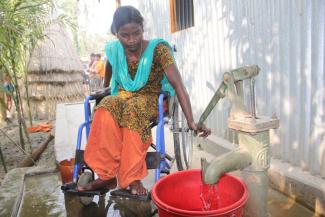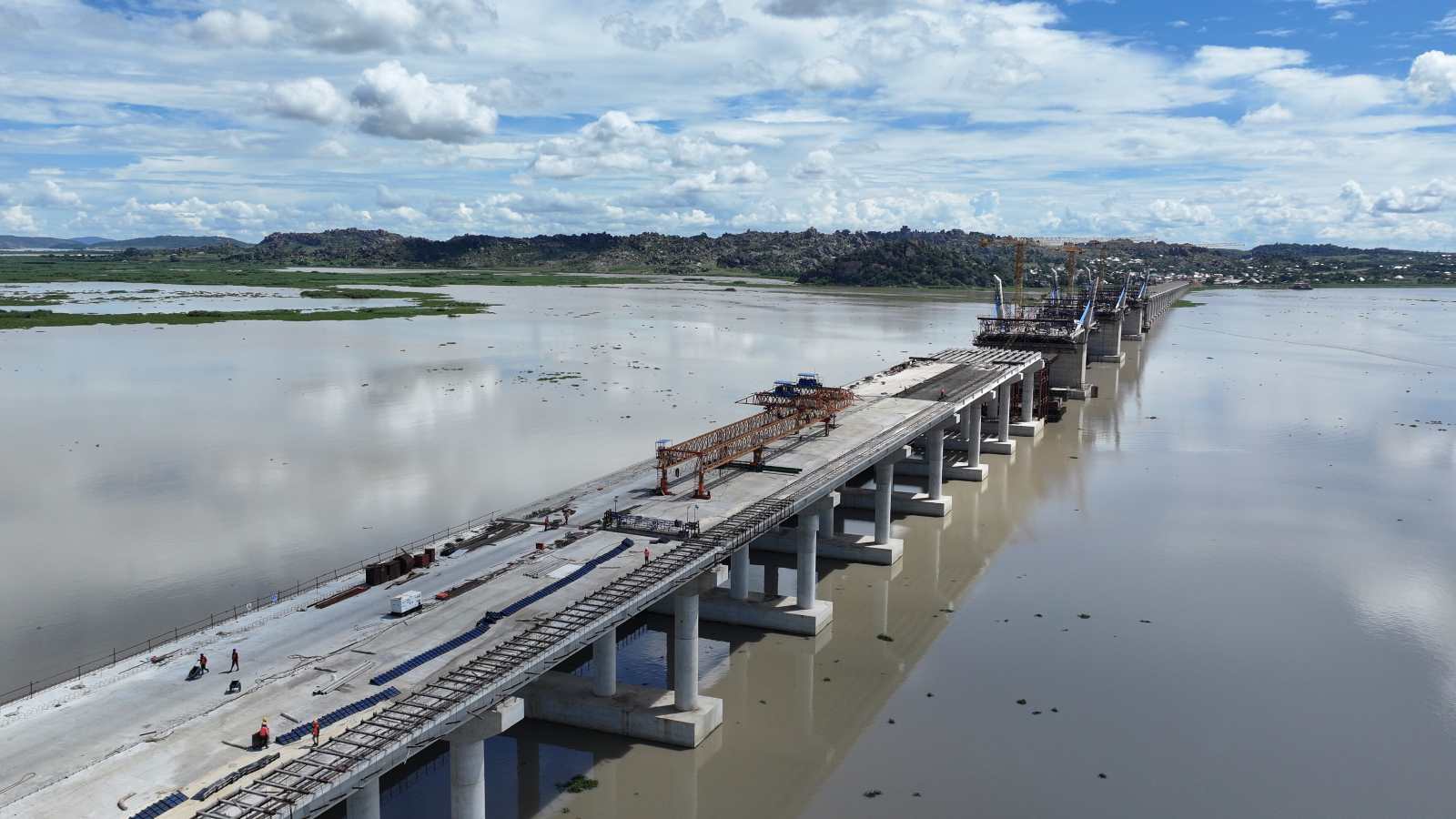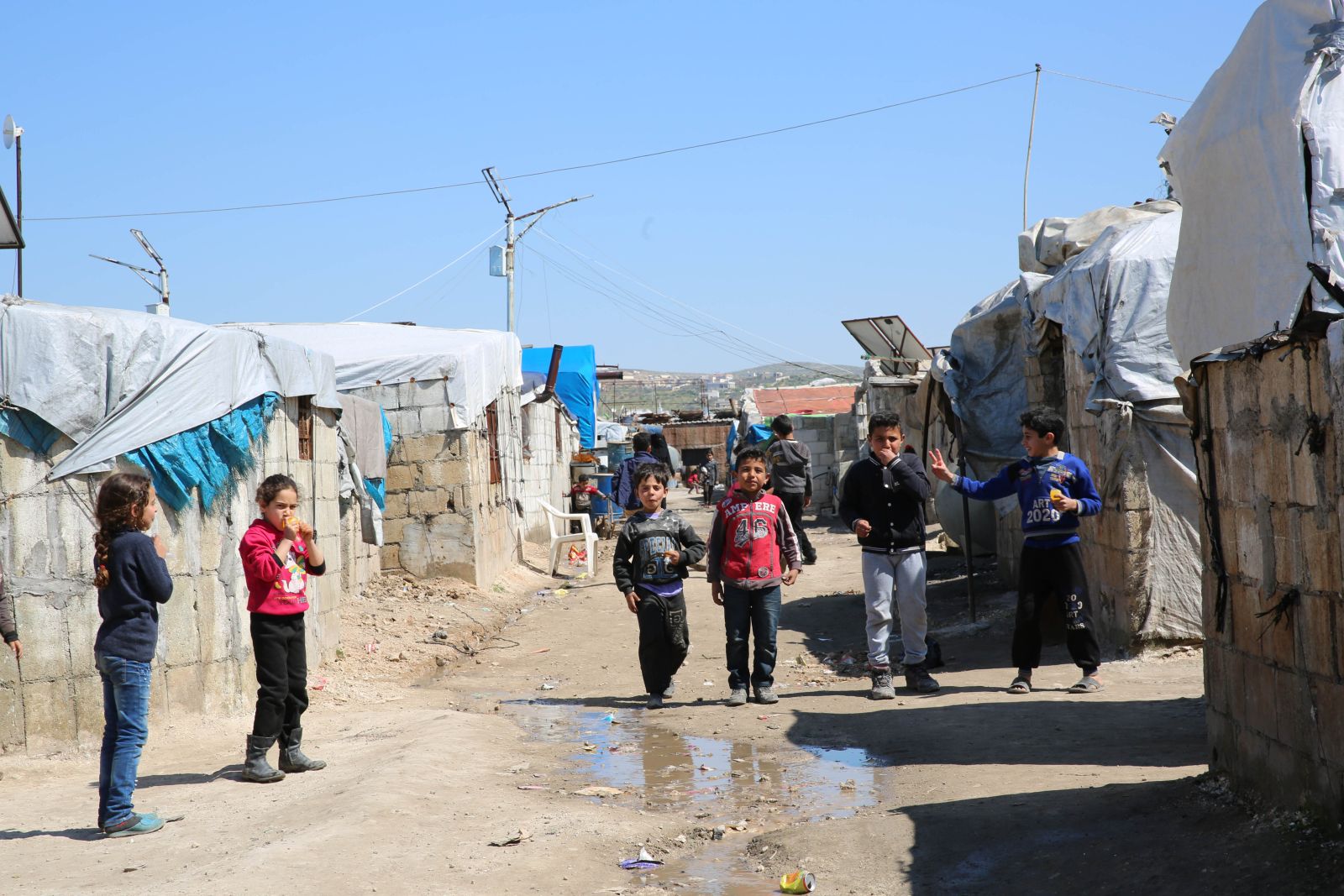People with disabilities
Let everyone benefit

Approximately 80 % of the world’s people with disabilities live in developing countries, and a disproportionate number of them are among the very poorest people on earth. This is not a coincidence. The relationship between poverty and disability is well understood.
People who are poor or who live in impoverished countries must frequently cope with bad working conditions, nutritional deficiencies, unhygienic facilities and a lack of health care. These are the conditions that make illnesses and (preventable) disabilities more likely.
At the same time, people with disabilities and their families are excluded from economic and social life in many ways. They spend more money on health care, have worse access to education and are more likely to be unemployed. Accordingly, disabilities increase poverty risks. Development agencies must do their best to disrupt this cycle. Individuals affected by disabilities are not the only ones who suffer. There are serious consequences for all of society.
A 2004 study by the World Bank showed that a lack of inclusion hurts the entire economy because human capital cannot bear full fruit, national productivity suffers and governments are forced to increase spending and lose tax revenues at the same time. According to other studies, disabilities reduce global GDP by five to seven percent.
A study published by the International Centre for Evidence in Disability (ICED) at the London School of Hygiene and Tropical Medicine in 2014 points at this fact with particular force: excluding people with disabilities from important areas of life results in significant economic costs. For example, the economy of Bangladesh loses an estimated $ 54 million per year due to a lack of education for disabled people and their caretakers. The government of the Philippines loses tax revenue amounting to between $ 8 and 9.8 million just because of the high unemployment rate of those with uncorrected cleft lips and palates.
Thanks to such insights, the conditions for development work on inclusion have improved in recent years. The UN Convention on the Rights of Persons with Disabilities was passed in 2006. It requires that participating states consider people with disabilities in all international development programmes and disaster relief efforts.
The 2030 Agenda for Sustainable Development, which the UN agreed last year, is another important step in the same direction. The 2030 Agenda condemns every form of discrimination and mentions people with disabilities explicitly in this context for the first time.
Ensuring success will require more than government action. Civil-society organisations must also help to ensure that daily life for people with disabilities truly improves. Many donor agencies, aid organisations and NGOs still unintentionally exclude people with disabilities from their work. Building sanitation facilities that are not barrier-free, for example, only benefits a share of the population, but not everyone.
It’s not enough for aid organisations to simply identify a new group to help. People with disabilities must become actively involved at all stages of the projects, from planning and implementation to monitoring and evaluation. To identify disabled people in project areas, it is not necessary to conduct expensive research. They live in every community. All that is needed to tap their potential is networking with local people and asking the right questions.
Self-help and advocacy groups are especially good sources of information on where disabled people live and what kind of help they require. These groups can also provide advice on how to address the people concerned and interact with them appropriately. Other relevant sources of information include government agencies, hospitals, charity organisations and schools. The leaders of faith-based organisations often know a lot about the disabled members of their communities. It is useful, moreover, to learn the terminology concerning disabilities, especially in local languages.
In everyday interaction, it is important to see disabled people as independent individuals and treat them as such. There is still a tendency to focus solely on their need for help. Development agencies should stick to the principle of not judging people by what they can't do, but by what they can. Agencies must create the conditions for them to realise their full potential.
Overcoming barriers
Disabled people encounter many obstacles. This is especially evident in natural disasters and armed conflicts. A deaf child has no chance of escaping a tsunami if there are only sirens to warn of its approach. A blind woman cannot find the food aid station or the emergency shelter if only signs point the way. Someone in a wheelchair will not be able to reach aid facilities that are only accessible via stairs.
Every humanitarian organisation must take accessibility into account. Doing so benefits other people as well: loudspeaker announcements help illiterate people; ramps serve children and the elderly.
Accessibility matters in everyday life – regarding, for instance, public transit, schools, workplaces and government offices. It means more than simply building escalators. Schools need teaching materials for visually impaired children, and government bureaucrats need training on how to interact with disabled people.
Sensitivity training and education, moreover, create opportunities for disabled people and improve their lives. Changes in attitudes make obstacles easier to overcome. Since last year, CBM and its local partners have been teaching regional authorities in Sri Lanka how to interact with people with disabilities. This project is funded by the EU and is yielding results. The district of Batticaloa has earmarked a share of its budget for creating new opportunities for disabled people, including a specially equipped reading room and accessible stands at the local market. These facilities give them better access to employment and education and thus allow them to lead more independent lives.
Inclusion is possible when politicians and civil society see it as an issue that concerns everyone and take it into account in development projects right from the start. It is high time for this to happen. A billion disabled people must no longer be ignored.
Rainer Brockhaus has directed the Communication and Programmes Division of the Christoffel-Blindenmission Deutschland e.V. since 2009 (CBM).
rainer.brockhaus@cbm.de
http://www.cbm.de













